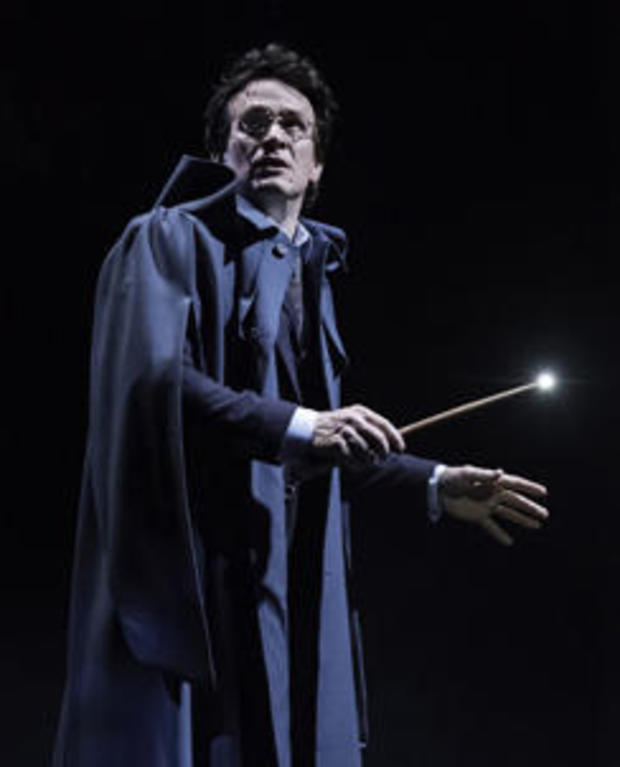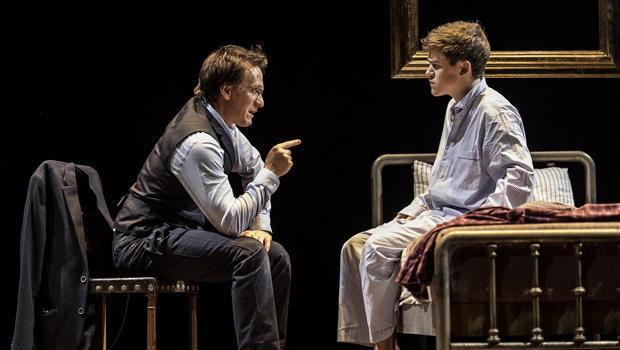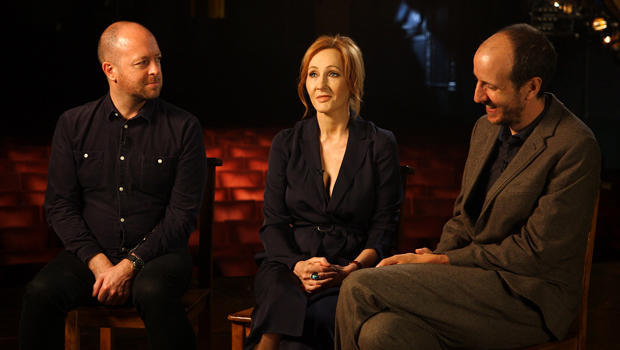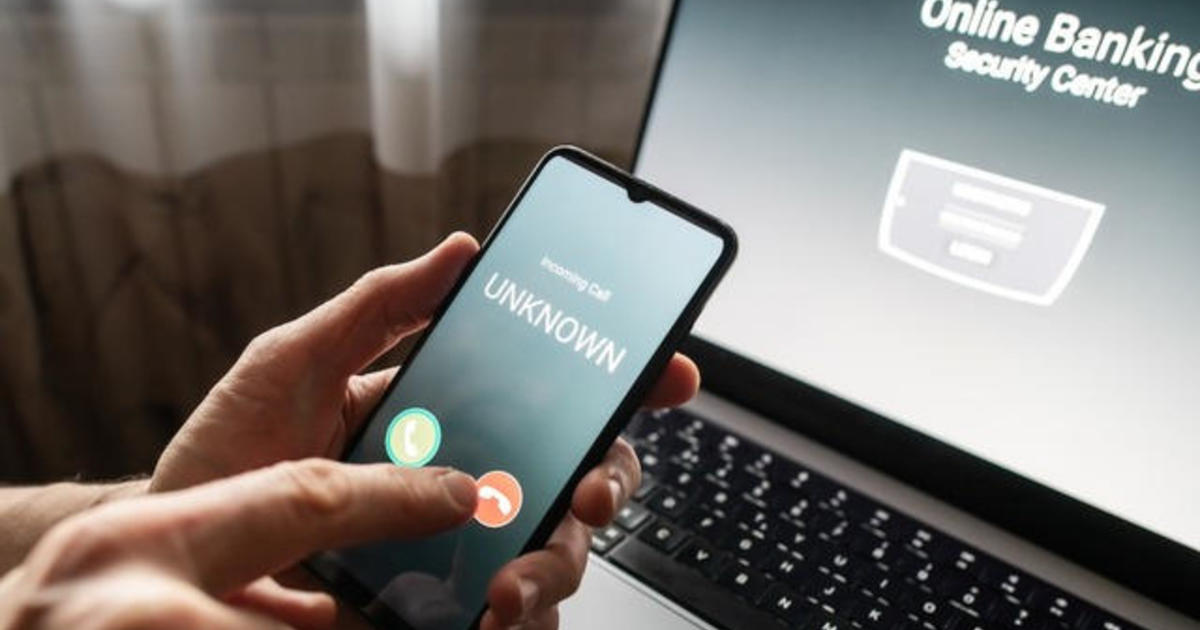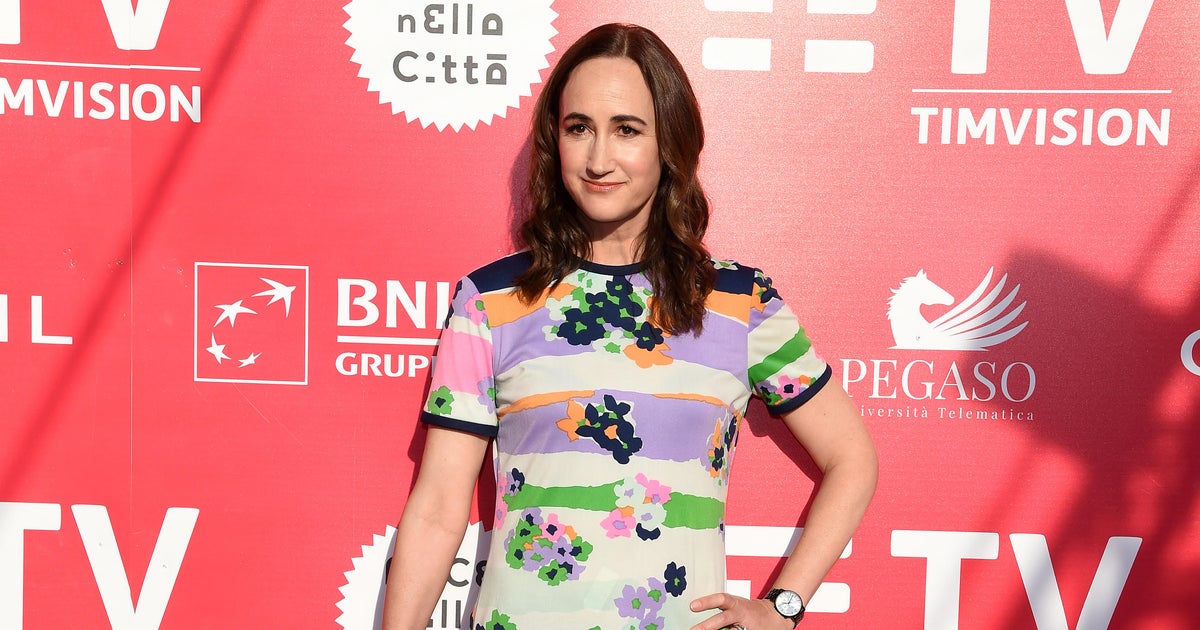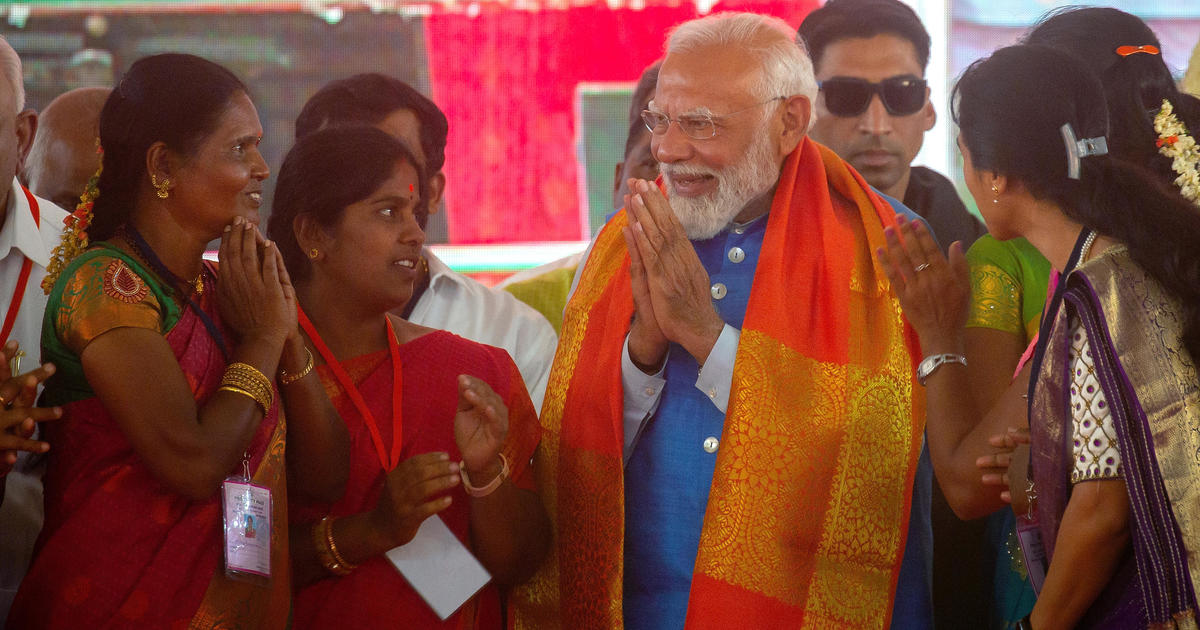Harry Potter brings his magic to the stage
Of all the shows coming to Broadway, the most talked about this new season bears the most famous name in wizardry. Mark Phillips in London picks up the tale:
When we last saw Harry Potter, it was at the end of the final book and movie -- "Deathly Hallows" -- when the boy wizard, now a father, was sending his own son, Albus, off to Hogwarts School of Witchcraft and Wizardry -- a trip that always began on the magical platform 9¾.
Seven books, eight movies and about a billion dollars to the good later for its creator, J.K. Rowling, that was supposed to be the end of it.
"I genuinely, I didn't want Harry to go onstage," Rowling said. "I felt that I was done."
So what happened? "Harry Potter and the Cursed Child" happened … a theatrical collaboration with director John Tiffany and playwright Jack Thorne.
It's been the theater event of the year in London. It won a record nine Olivier Awards (Britain's version of the Tonys). And it's about to go to Broadway. Tickets for the New York production, which opens next year, go on sale next month.
So, Phillips asked, "What is it about the prospect of earning millions of pounds from bringing Harry Potter to the stage that most appealed to you?"
"Well, I'd said no to everyone for 10 years," she replied. "Because to answer your question equally directly, we all know I don't need the money. Life is too short."
It was the prospect of working with Tiffany and Thorne, Rowling says, that finally convinced her.
That, and the temptation to tell the story of of Harry's son, Albus, and the burden he carries as the child of a famous parent. The rest, we sort of can't tell you.
The rest, we sort of can't tell you. Part of the schtick of the Harry Potter production is that anybody who's seen it is asked not to reveal the plot and spoil it for those who haven't.
So there.
The first scene of the play is the last chapter of "Deathly Hallows," explains John Tiffany: "Albus, it's kind of suggested very beautifully, isn't gonna have as easy a time. So, it's all there for the kind of taking."
And they do take their time taking it. The play is actually two plays -- five hours of theater, split into two parts.
The audience hasn't complained. The play (both parts) is the hottest ticket in town, and selling seats for a year from now.
Phillips asked Rowling, "Is it possible to give Potter fans too much? Or, they suck up anything that you lay on to them for -- why stop at two performances? Could have gone on for a week, I suppose."
"Just because, she spoke like a mother, people want a lot doesn't mean they should have everything that they want," Rowling replied. "We'll just give them what's good for them!"
And the magic that special effects could bring to the movies has not been lost on the stage.
"John's line all the way through it was, you know, 'The films have special effects. We have the collective imagination of our audience. So if we can create something that takes them on this journey, they will go with us,'" said Jack Thorne.
Rowling's audience has always gone along with her, from the days when they would line up at bookstores on publication day. But it hasn't always been entirely happy with her.
There have been times, she admits, when she felt her audience rebel against her. "Oh God, yeah. Come on, this is the age of social media. You think I don't get told in no uncertain terms that I've done the thing they didn't want to happen to a character, or why on Earth am I taking it into theatre? One is never deluded about the fact that some people aren't happy. That's the way it goes."
So, does Rowling care what the public says? "As a writer or any kind of creative person, you actually do have to hold tight to your vision," she said. "I have no interest whatsoever in doing certain things that I know would be very popular with the fandom."
Phillips interjected, "Can I ask what … "
"I'm not even gonna go there," she said.
"What are they asking for? Come on."
"I'm not going there. I'm not going there. No. I'm not saying that. Because my Twitter feed will be a place of hell for three months if I say it, so I'm not gonna say it."
"Sunday Morning" first met Jo Rowling in pre-Twitter 1999, when the whole Harry Potter thing was just taking off. She was then a single mother, scraping a living as a substitute teacher, who had an idea one day while riding a train.
"And I sudden thought, 'wizard school', and I got so excited about the idea, I really did," she explained. "But I didn't have a working pen on me, so I just had to sit there for four hours and think. And loads of the characters that appear in the book, came to me during that train journey."
When she did find a pen, the books spilled out onto paper. By the time Phillips spoke with her, her first three books were at the top of bestseller lists on both sides of the Atlantic.
"I never expected the book to make me money," she said. "I was totally realistic about what writing children's books involved. And that involves no money really at all."
Until, that is, Jo Rowling invented Harry Potter. Each successive book set new records as the fastest-selling of all time. Harry -- the books, the movies -- became an industry.
Phillips asked, "Was there a point where you realized, 'My whole life is different than I thought it was going to be'?"
"Around about the time I met you," she laughed. "And the two things aren't connected."
No? "So about '99, it was starting to dawn on me that this wasn't going to go away. I remember thinking, Whoo, OK, OK, let's stop, take stock, it's OK, we can handle this. And then everything went mad."
And the craziness kept on going until the end (or what was supposed to be the end) of Harry Potter.
Rolling struck out on a new path by writing a series of detective novels under name of Robert Galbraith. They sold OK, until it became known that Robert Galbraith was Jo Rowling. Then they sold a lot better.
She explained she'd wanted to send it out as an unsolicited manuscript. "I wanted to get honest feedback."
Why? "Because I'm not stupid!" she laughed. "I'm fully aware that I could write a really rubbish detective story and people would probably say, 'Well, you know, it'll probably sell a few copies 'cause it's got her name on it,' and that's not what I wanted to do. I wanted to really earn it.
"And so I did. I managed to get an offer from someone who didn't know it was me. They wanted to meet 'Robert,' which was fabulous, except I couldn't go to the meeting because I clearly wasn't, I'm not "Robert.' So, things were getting a little bit complicated when my cover was blown!"
But the play has brought her back to Harry Potter, the boy wizard with the scar on his forehead that hurts when trouble is coming, leading to one last magical question: "Is this the end of it?"
"Harry's story now, I'm done. I'm done," Rowling said. "I needed to be persuaded to do 19 years on, and I'm really glad I was persuaded, because I'm so proud of this play. But no, we're not going to see Albus' son go to Hogwarts. Well, not on my watch!" she laughed. "In 100 years time, I'll come and haunt the person who does it!"
For more info:
- "Harry Potter and the Cursed Child, Parts One and Two" at the Palace Theatre, London | Ticket info
- "Harry Potter and the Cursed Child, Parts One and Two" - Opening at the Lyric Theatre, New York City, Spring 2018 | Registration to purchase tickets begins Oct. 1
- jkrowling.com
- pottermore.com (from J.K. Rowling)
